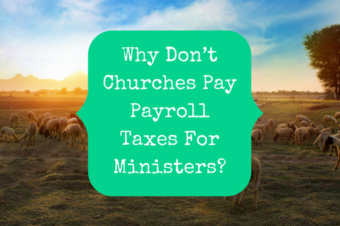
Finances are the #1 cause of stress in America today and churches should be part of the solution by providing emotional support and financial education.
What do these statistics tell you?
- Though we are the wealthiest nation, the US ranks 14th in financial literacy worldwide.
- Finances are the #1 cause of stress in America, with 72% of adults saying that they feel stressed about money some of the time.
- Money is the #1 cause of arguments between spouses.
- Too much conflict or arguing is the second most commonly named “major” reason for divorce.
Pastors, we have a problem. And you can be part of the solution.
The Problem & Effects Of Financial Illiteracy
If your congregation is representative of our nation, only 57% of them would be considered financially literate. This ignorance is causing almost ¾ of them stress. This stress wears away at their health, causing headaches, upset stomach, elevated blood pressure, chest pain and problems sleeping. The more stress someone is under, the more likely they are to engage in unhealthy behaviors to manage their stress, like alcohol, tobacco or overeating.
Stress doesn’t just attack the body, it wreaks havoc on relationships. It causes discord between spouses. Financial pressures slowly chip away at marriages until they crumble.
Research shows that financial struggles also impede an individual’s cognitive abilities, which can lead to poor decision-making, which only perpetuates their bad financial, health and marriage situations.
This is nothing new. You can’t blame it on The Great Recession. Money has been the top stressor since the first American Psychological Association Stress in America™ survey in 2007. This isn’t something that is going to go away with the next president or the next bull market. This is a persistent problem that is eating away at our society and needs to be addressed by churches.
We Are The Solution
So what can churches do? I see two ways that churches can help both relieve and prevent the financial stress felt by so many in their congregations:
1.Provide Emotional Support
The APA survey found that people with money-related stress are able to cope and manage their stress in healthier ways when they have emotional support. By emotional support, they mean someone you can turn to for talking over problems and helping make difficult decisions.
This doesn’t mean that the pastor has to become everyone’s best friend and accountability partner. There just aren’t enough hours in a day. However, emotional support can be fostered through small groups and lay counseling programs. As a pastor, you can lead your church in creating an environment where people can find emotional support.
2. Teach Wise Money Management
It makes sense that people will be stressed about money if they don’t understand how it works or what they should be doing with it. I think church is the perfect place to start trying to rectify our nation’s financial literacy problem. People come every Sunday expecting to be taught. Why not take advantage of the opportunity to teach them how to be good stewards of the resources God has entrusted to them?
You may see that and think, “Wait a minute! How can I teach something that I don’t even know myself?” If you want to teach your congregation financial principles, you must learn for yourself first. Luckily, we are living in the Information Age. There are innumerable free resources online, like this blog. Even professional financial advisors admit that pretty much anything you need to know can be found on the internet. There are also books and courses that can help you improve your financial literacy.
Another option is to outsource. If you don’t feel up to it, or simply aren’t interested in becoming a financial educator, there are other ways to go about it. Dave Ramsey’s Financial Peace University is an excellent program to teach financial literacy in the small group format. Thousands of churches host classes every year. I know that he also provides a program for teaching entire churches at one time.
I’m sure there are other people and ministries out there to help churches become financially literate. My mom told me the following story about her church:
The church was growing and in need of a new building, so they brought the need before the congregation. Unfortunately, few in the congregation had their finances in order enough to be able to help. So, the church brought someone in to teach about finances. Now the congregation is financially literate and they have a beautiful new building.
How To Discuss Money In Church
There shouldn’t be any reason why you can’t take a more proactive approach to helping your congregation learn to manage their money better. If you’re afraid of being the stereotypical greedy pastor who only talks about money, just don’t add, “so you can give the church more” to the end of every sentence.
Don’t say, “change your habits so you can give more.” Say,
“Change your habits so you don’t fight with your spouse so much.”
“Change your habits so you don’t fear the future.”
“Change your habits to lower your blood pressure.”
“Change your habits so you won’t be a slave to a job you hate.”
“Change your habits so that you can live the life God has planned for you, full of joy and hope.”
You can preach about giving another day. First, you have to help bring people to a place where they will actually have something to give. Think of all of the hours of marital counseling and hospital visits you could save by simply providing financial education to the people you pastor.
Now it’s your turn. Tell me in the comments:
Do you think the church even has the right to address financial literacy? Have you tried any kinds of financial education programs in your church? If so, what have been the results? If not, why not?



